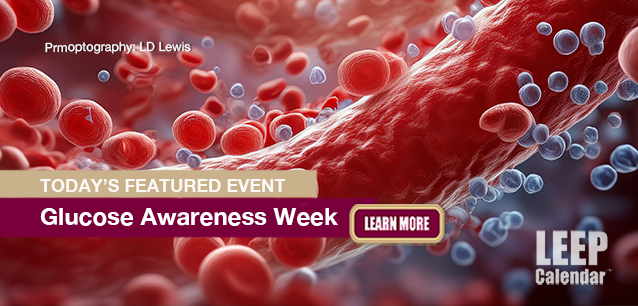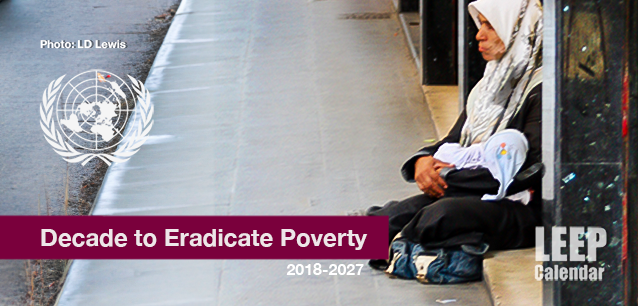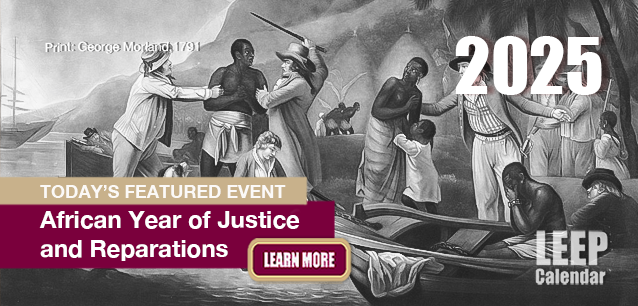 AD
AD
Country
- Africa
- Alcohol, Tobacco & Drugs
- Animals, Fish, Insects & Birds
- Anniversaries
- Australia
- Books
- Brazil & S.America
- Buddhism
Category
- Afghanistan, AF
- Aland Island, AX
- Albania, AL
- Algeria, DZ
- American, Samoa, AS
- Andarra, AD
- Angola, AO
- Anguilla, Al
Event Type
- Daily
- Weekly
- Annual
- Recurring
Duration
- All
- 1 Day
- 2 Day
- 3 Day
- 4 Day
- 5 Day
- 6 Day
Event Type
- Daily
- weekly
- Annual
- Recurring
Event Type
- Daily
- weekly
- Annual
- Recurring
Today is: September 23
Bi Visibility Day
Checkers/Dog in Politics Day (1952)
Innergize Day
National Day, (SA)(1932)
Neptune Day (1846)
Sign Language, Intl. Day of
Adopt-a-Less-Adoptable Pet Week
Adult Day Services Week
Adult Education and Family Literacy Week, Ntl.
Balance Awareness Week, Intl.
Banned Books Week
Big Beachwatch Weekend (UK)
British Food Fortnight (UK)
Child Passenger Safety Week
Deaf Dog Awareness Week, Ntl.
Deaf, International Week of the
Dog Week, Ntl.
Employ Older Workers Week, Ntl.
Estuaries Week, Ntl.
Eye Health Week, Ntl.(UK)
Eye Health Week, Ntl.(UK)
Family Week (PH)
Family Week (PH)
Farm Safety and Health Week, Ntl.
Glucose Awareness Week, Ntl
Go-Kart Week, Intl.
Hafte Defâ Moqaddas (IR)(1980)
Happiness at Work, Intl. Week of
Happiness at Work, Intl. Week of
Historically Black Colleges and Universities Week, Ntl.
Image Week, Build a Better
Keep Kids Creative Week, Ntl.
Migraine Awareness Week, Ntl. (UK)
Oktoberfest (DE)
Pchum Ben Festival (KH)
Reflexology Week, World
Sea Otter Awareness Week
Security Officer Appreciation Week, Ntl. (US/CA)
Stormwater Awareness Week
Surgical Technologists Week
Sustainable Seafood Week, Ntl. (UK/IE)
Tolkien Week, Intl.
Unmarried and Singles Week, Ntl.
Alcohol and Drug Addiction Recovery Month, Ntl.
Alzheimer's Month, World
Animal Pain Awareness Month, Intl.
Arthritis Month (CA)
Asu (S)
Atrial Fibrillation Awareness Month, Ntl.
Attendance Awareness Month
Attendance Awareness Month
Attention Deficit Hyperactivity Disorder (ADHD) Month
Baby Safety Month
Be Kind to Editors and Writers Month
Beach Month, World
Bear Necessities Month
Bear Necessities Month
Better Breakfast Month
Blackpool Illuminations (UK)
Blue September (AU/NZ)
Blueberry Popsicle Month, Ntl.
Bourbon Heritage Month, Ntl.
Brain Aneurysm Awareness Month, Ntl.
Campus Fire Safety Month, Ntl.
Campus Safety Awareness Month, Ntl.
Candle Month, World
Candle Month, World
Chicken Month, Ntl.
Childhood Cancer Awareness Month, Intl.
Childhood Obesity Awareness Month, Ntl.
Childhood Obesity Awareness Month, Ntl.
Children's Awareness Month
Cholesterol Education Month, Ntl.
Civil Service Month (PH)
Civil Service Month (PH)
Classical Music Month
Clean-up Month, Intl.
Clean-up Month, Intl.
Co-op Awareness Month
College Savings Month
Coupon Month, Ntl.
Courtesy Month, Ntl.
Craniofacial Acceptance Month
DNA, Genomics and Stem Cell Education Month, Ntl.
Dementia Awareness Month (AU)
Democracy Month, Ntl.
Dystonia Awareness Month (AU)
Dystonia Awareness Month (CA)
Fall Hat Month
Fashion Month (Spring/Summer)
Festival of Learning Have a Go Month (UK)
Festival of Learning—Have a Go Month (UK)
Food Hero Month, Be a, Ntl.
Food Safety Education Month, Ntl.
Footy Colours Day (AU)
Fruits and Veggies, More Matters Month
Fun Fair Month, World
Fun Fair Month, World
Gold Out Month, Pediatric Cancer
Gospel Music Heritage Month, Ntl.
Grains Month, Whole
Great Cycle Challenge (US)
Guide Dog Month, Ntl.
Guide Dog Month, Ntl.
Gynecologic Cancer Awareness Month
Happy Healthy Cat Month
Head Lice Prevention Month
Healthy Aging Month
Heart Month (IE)
Heart Month (IE)
Hispanic Heritage Month (1821)
Honey Month
Hunger Action Month (CA)
Hunger Action Month
ITP Awareness Month
ITP Awareness Month
Idiopathic Thrombocytopenic Purpura (ITP) Awareness Month
Infant Mortality Awareness Month, Ntl.
Intergeneration Month
Intergeneration Month
Leukemia and Lymphoma Awareness Month
Leukemia and Lymphoma Awareness Month
Library Card Sign-Up Month, Ntl.
Life Insurance Awareness Month, Ntl.
Liptember (AU)
Liptember (AU)
Low-Cholesterol, Low-Fat Pizza Bake, Great American
Mold Awareness Month
Mushroom Month, Ntl.
National Month (CL)(1810)
Neighbor Month
Newborn Screening Awareness Month
Obesity Awareness Month, Childhood Ntl.
Odd Fellows Friendship Month
Odd Fellows Friendship Month
One-on-One Month
Organic Month, National (CA)
Organic September (UK)
Ovarian Cancer Awareness Month (CA)
Ovarian Cancer Month (US)
PCOS Awareness Month
PCOS Awareness Month
Pain Awareness Month
Pain Awareness Month
Papaya Month, Ntl.
Papaya Month, Ntl.
Passport Month, Ntl.
Peace Consciousness Month, Ntl. (PH)
Peace Consciousness Month, Ntl. (PH)
Peripheral Artery Disease Awareness Month, Ntl.
Peripheral Artery Disease Awareness Month, Ntl.
Pet Insurance Month, Ntl. (US/CA)
Pet Sitter Education Month
Pet Sitter Education Month
Photos Month, Save Your
Photos Month, Save Your
Piano Month, Ntl.
Pleasure Your Mate Month
Preparedness Month, Ntl. (2001)
Prostate Cancer Awareness Month (US/CA)
Rabi al-Thani (M)
Recovery Month, Ntl.
Reye's Syndrome Awareness Month
Rice Month, Ntl.
Rule of Law Month (PH)
Rule of Law Month (PH)
Running of the Balls (US-TN)
STEPtember
Scroll Free September (UK)
Seed Gathering Seasons (UK)
Self-Improvement Month
Self-Improvement Month
Service Dog Month, Ntl.
Sewing Month, Ntl.
Sexual Health Awareness Month
Sexual Health Awareness Month
Shameless Promotion Month
Sickle Cell Month, Ntl.
Skincare Awareness Month, Ntl.
Sourdough September
Speak Out Month, World
Spinal Cord Injury Awareness Month, Ntl.
Sports Eye Safety Month, Ntl.
Square Dancing Month, Intl.
Straw Free September
Subliminal Communication Month
Suicide Prevention Month (US/CA)
Suicide Prevention Month (US/CA)
Therapy Dog Awareness Month (AU)
Tiger Month, Intl. Save a
Tiger Month, Intl. Save a
Tishrei (J)
Turner Prize Exhibition (UK)
Update Your Resume Month
Urology Awareness Month (UK)
Urology Awareness Month (UK)
Vascular Disease Awareness Month
Vascular Disease Awareness Month
Wilderness Month, Ntl.
Wine Box Month, Intl.
Wine Month Ntl., California (US-CA)
Women's Friendship Month, Intl.
Workforce Development Month, Ntl.
Yoga Awareness Month, Ntl.
Youth Leadership Month, Ntl.
LEEP Calendar
Scroll to explore events active on this date.
Additional Events on LEEP
LEEP INK FEATURES

August? Absolutely!
In August, we live through the Dog Days of Summer. It's hot and often humid, and those who can leave for better climates do. Down south, winter is in full force. August is also known as "the ...

In The Heat of July: July 2025 Events
Is it hot enough (or cold enough if you're below the equator) for you yet? There is actually a day for that! Like every month, I pick a diverse collection of events you may or may not know about. This ...

May Blooms: Events in May 2025
Along with October, May is one of the most densely packed months of the year. It's before the summer humidity and the last whole month of the school year. The weather is warming in t...
About False Confession Day
United States
Ends: Nov 21, 2023
DESCRIPTION:
False Confession Day highlights that just because someone confesses to a crime doesn't mean they did it. Additionally, it took a constitutional amendment in the US and a Supreme Court ruling to ensure all Americans would not be subjected to coercion, torture, or threat of bodily harm during police interrogation. This is not the case in many parts of the world, and the US is often the exception.
The landmark case of Brown v. Mississippi, [297 US 278, (1936)], argued before the United States Supreme Court, found that a defendant's involuntary confession, when obtained by police violence, cannot be seen as evidence. The act of doing this, the judges determined, violates the Due Process Clause of the Fourteenth Amendment.
According to Saul M. Kassin, a professor of Psychology at Williams College and one of the leading researchers into the phenomenon of false confessions, there are three basic types of false confessions: voluntary false confessions, compliant false confessions, and internalized false confessions.
Voluntary false confessions are given absent outside influences. There are various reasons a person may do this, from psychological to protection.
Compliant and Internalized false confessions generally occur due to coercion. Safeguards have been added to the US legal system to attempt to detect these in advance.
The Innocence Project, a US non-profit that re-presents cases of those convicted of serious crimes, recently determined that 25% of those they've found innocent confess to their crimes.
It's unknown if this date came about due to a specific court case or anniversary. November 21 is not the anniversary of the aforementioned legal rulings or the ratification of the 14th Amendment. However, it still is an excellent day to explore the psychology of false confessions and what we can do to prevent the non-guilty from ending up in jail or worse.
VIDEOS
Currently, this event does not have supporting videos.
SUPPORTING DOCUMENTS
Currently, this event does not have supporting documents.
ADDITIONAL IMAGES
Currently, this event does not have supporting images.
Where would you like to go now?
 AD
AD
By using this site. You are agreeing to use of cookies. Learn more in our Privacy Policy
/footer-logo.svg)
LEGAL: Excerpts and links may be used, provided that full and clear attribution is given to Jubilee LLC and LEEPCalendar.com, with appropriate and specific direction to the original content (Page URL). Additional documents, embedded videos and additional image rights retained by their creators and are provided to increase understanding of the event or topic.
Jubilee LLC reserves the right to accept or reject inclusion of events in this calendar. The appearance of an event in LEEP Calendar does not imply endorsement of the event, nor the organization championing the event by Jubilee LLC, its stakeholders, customers or subsidiaries. All dates, contact information, URLs, addresses, and information relating to any event, promotion or holiday are subject to change without notice and should be treated as estimated. Jubilee LLC, our stakeholders, customers and subsidiaries cannot warrant accuracy. Users of this application are solely responsible for verifying actual event date with organizers and additional sources prior to committing resources, financial, human or otherwise.










































































